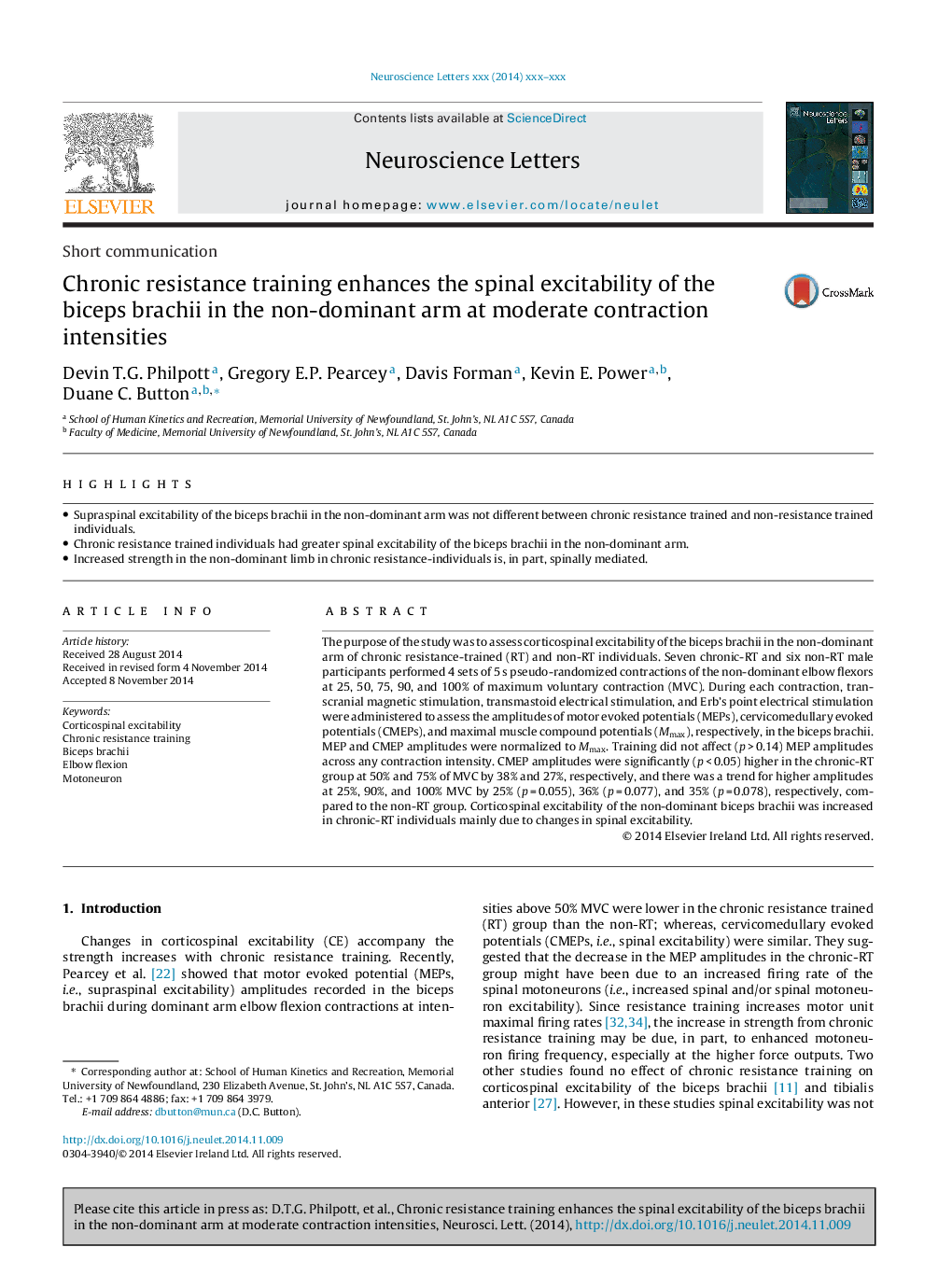| Article ID | Journal | Published Year | Pages | File Type |
|---|---|---|---|---|
| 6281148 | Neuroscience Letters | 2015 | 5 Pages |
Abstract
The purpose of the study was to assess corticospinal excitability of the biceps brachii in the non-dominant arm of chronic resistance-trained (RT) and non-RT individuals. Seven chronic-RT and six non-RT male participants performed 4 sets of 5 s pseudo-randomized contractions of the non-dominant elbow flexors at 25, 50, 75, 90, and 100% of maximum voluntary contraction (MVC). During each contraction, transcranial magnetic stimulation, transmastoid electrical stimulation, and Erb's point electrical stimulation were administered to assess the amplitudes of motor evoked potentials (MEPs), cervicomedullary evoked potentials (CMEPs), and maximal muscle compound potentials (Mmax), respectively, in the biceps brachii. MEP and CMEP amplitudes were normalized to Mmax. Training did not affect (p > 0.14) MEP amplitudes across any contraction intensity. CMEP amplitudes were significantly (p < 0.05) higher in the chronic-RT group at 50% and 75% of MVC by 38% and 27%, respectively, and there was a trend for higher amplitudes at 25%, 90%, and 100% MVC by 25% (p = 0.055), 36% (p = 0.077), and 35% (p = 0.078), respectively, compared to the non-RT group. Corticospinal excitability of the non-dominant biceps brachii was increased in chronic-RT individuals mainly due to changes in spinal excitability.
Related Topics
Life Sciences
Neuroscience
Neuroscience (General)
Authors
Devin T.G. Philpott, Gregory E.P. Pearcey, Davis Forman, Kevin E. Power, Duane C. Button,
